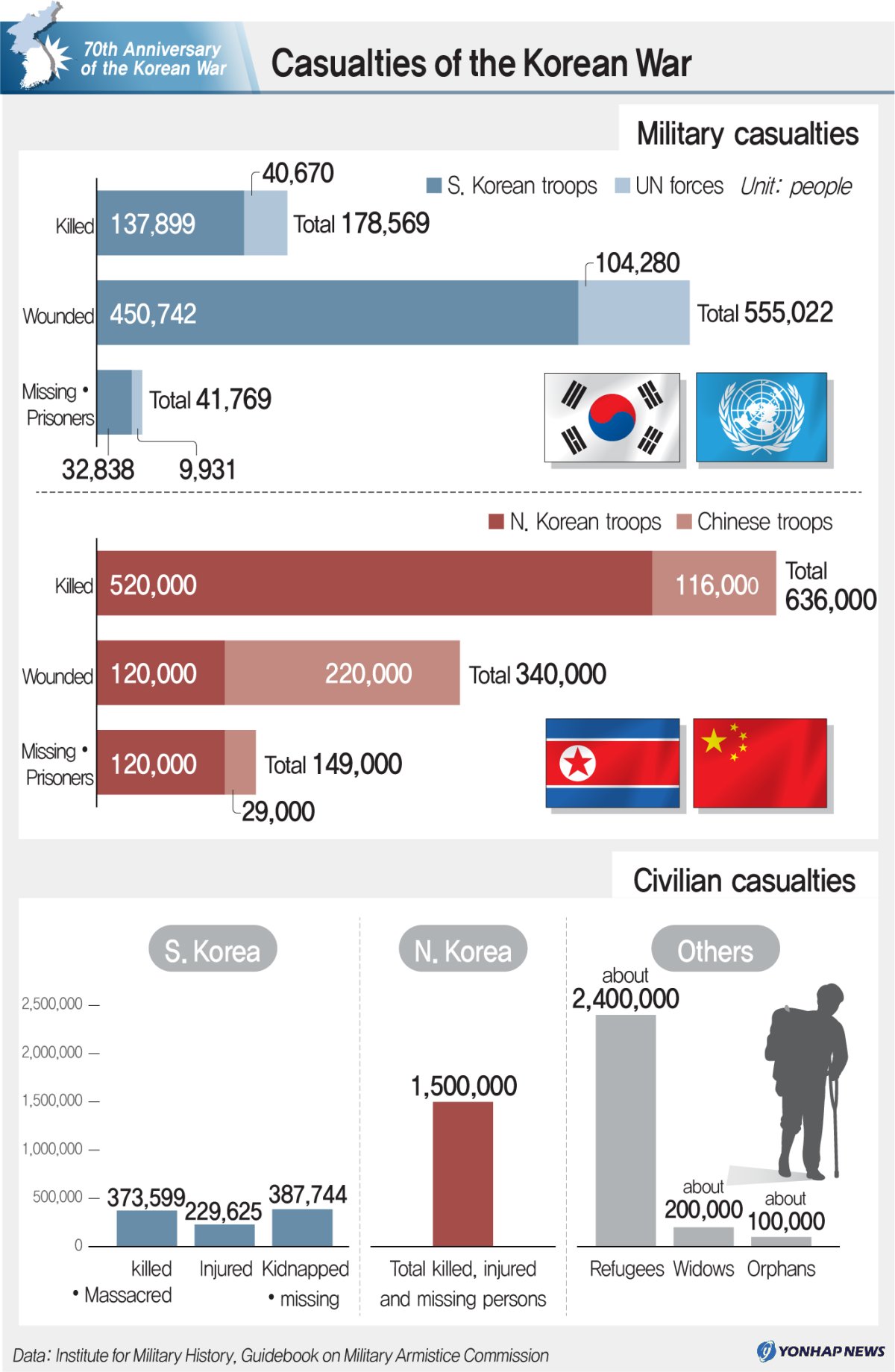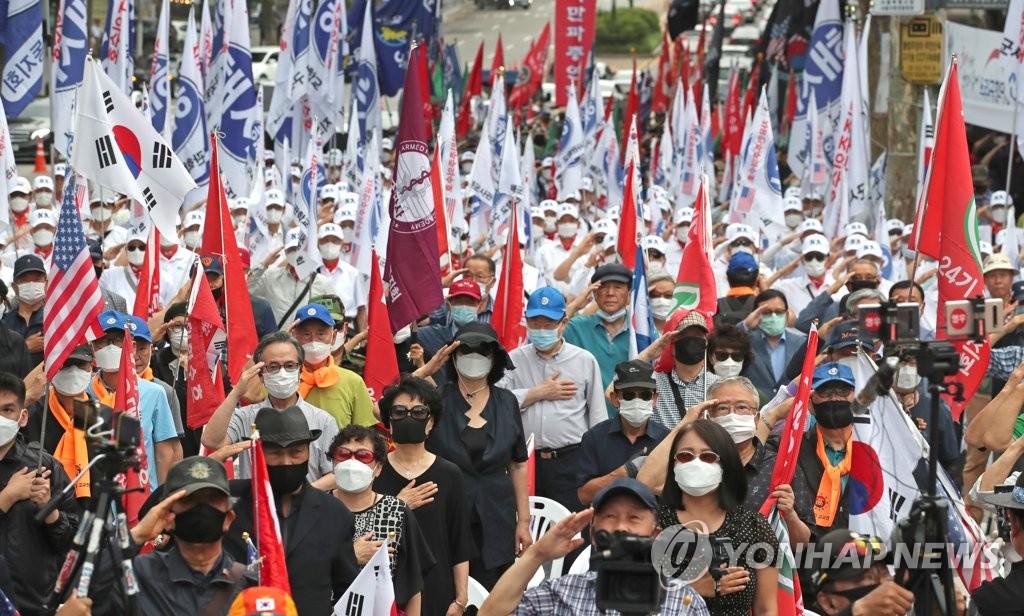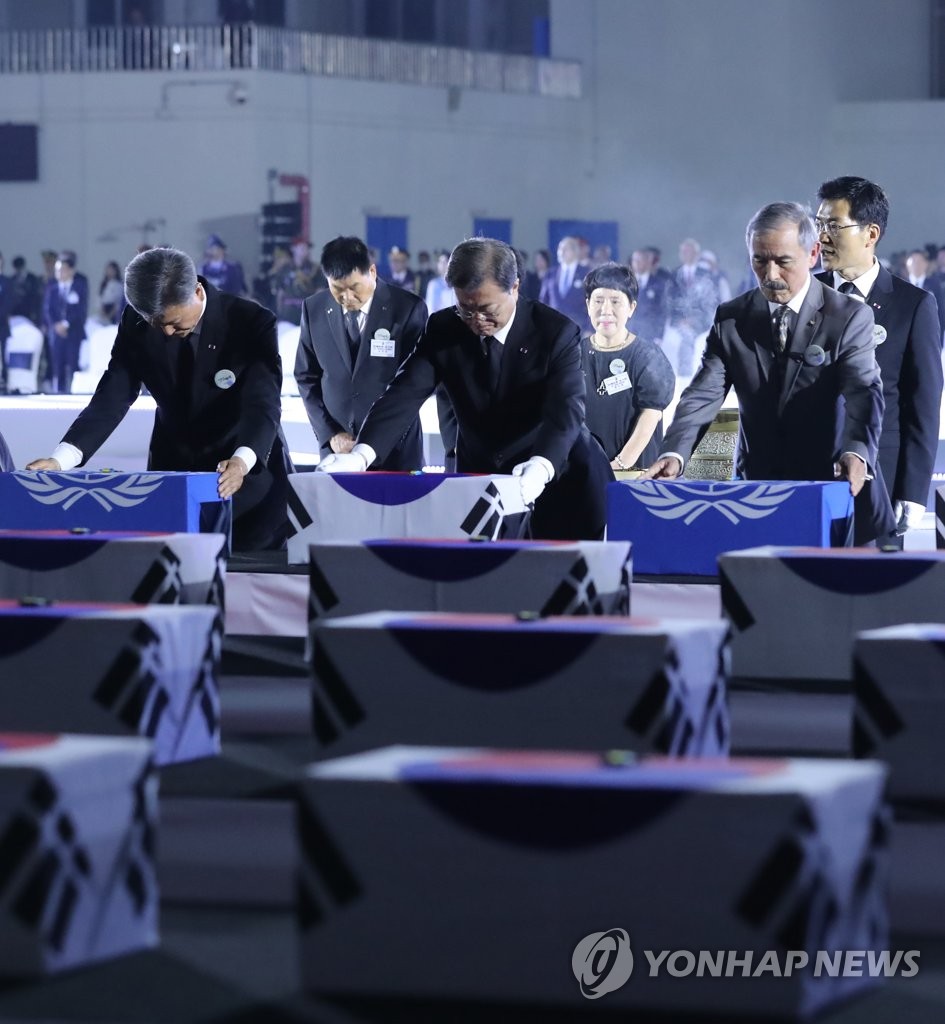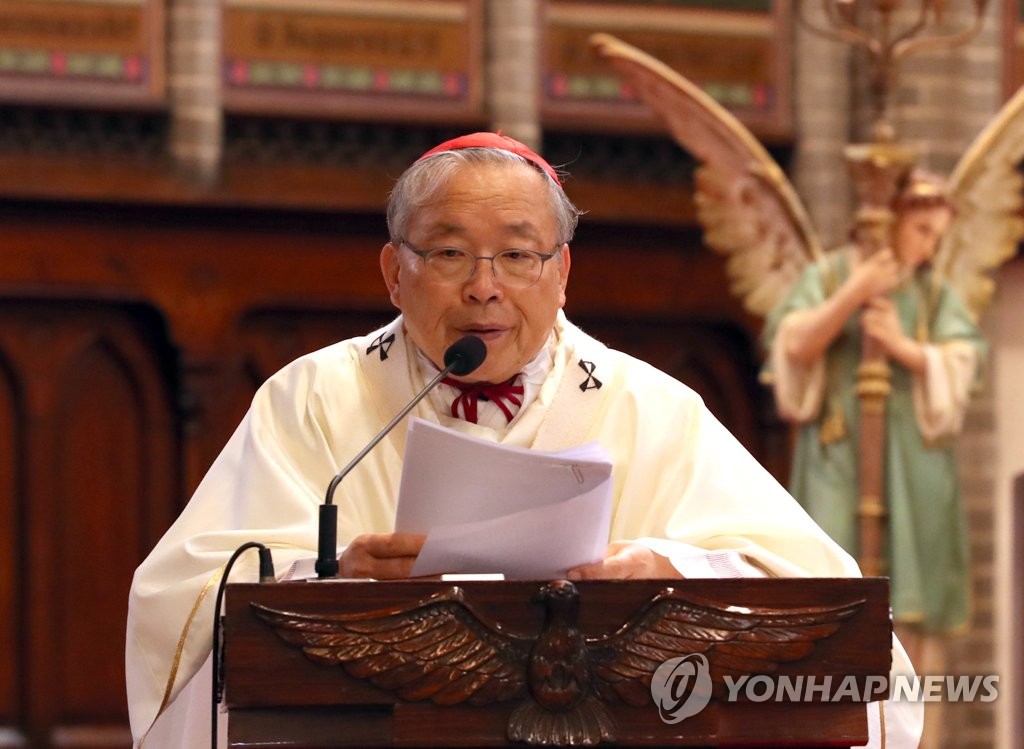And still no resolution:
Also:
The defense chiefs of South Korea and the U.S. issued a joint statement on Thursday marking the 70th anniversary of the Korean War.
Defense Minister Jeong Kyeong-doo and U.S. Secretary of Defense Mark Esper said the alliance between the two allies "forged through years of combat and shared sacrifice" is "ironclad and remains the linchpin of security, stability and prosperity on the Korean Peninsula."
The two officials reaffirmed their "commitment to maintain a robust defense posture and strengthen... coordination toward [the two allies’] common objective of the complete denuclearization of North Korea in a final, fully verified manner."
The remains of 147 South Korean soldiers who died in North Korea during the Korean War returned home on Wednesday.
They had been found by American excavators in North Korea and transported to the U.S. for identification.
 |
| (source) |
 |
| (source) |
 |
| (source) |
 |
| (source) |
Also:
International human rights activists have slammed the South Korean government for not supporting a North Korea resolution of the UN Human Rights Council for a second year running, according to Voice of America on Wednesday.
Greg Scarlatoiu, the executive director of the Committee for Human Rights in North Korea, said, "Seoul used to be one of the key members of an informal coalition of like-minded UN member states that produced very significant and very effective measures addressing the human rights situation in North Korea. [But now] Seoul has given up the high ground it once held."
Phil Robertson, the deputy director of Asia Division at Human Rights Watch, added, "President Moon Jae-in's approach to North Korea can be best characterized as abandoning any human rights principles he ever stood for. His shameful appeasement of [North Korea] and its leaders betrays the UN Human Rights Council's earnest efforts to hold North Korea accountable for its horrific record of rights abuses."
And Robert King, a former special envoy for North Korea human rights issues at the U.S. State Department, said, "The series of temper tantrums by [Kim Jong-un's sister] Yo-jong rejecting valid human rights criticism should be acknowledged. When a child throws a tantrum, ignoring it only encourages such behavior to continue. I regret that Seoul did not speak out."
**
"Kim Il-sung's Children," a documentary shedding light on the fate of North Korean orphans sent to Eastern Europe after the Korean War, hits theaters on Thursday.
The film by Kim Deog-young delves into the fate of around 5,000 North Korean orphans sent to five Eastern European countries from 1952 to 1960. Kim scoured archives in Bulgaria, Hungary, Poland, Romania, and the Czech Republic as well as the schools and dormitories where the children studied and lived. ...
Around 2,500 North Korean orphans were sent to Romania from 1952 to be educated. Eastern bloc countries accepted the orphans to gain boasting rights about Socialist solidarity during the Cold War.
It was a North Korean appointed to supervise the orphans, Cho Jung-ho, with whom Mircioiu, an art teacher, fell in love, and the two got married in 1957. Cho was ordered back to the North in 1962 and Mircioiu went to Pyongyang with him.
But Cho was hauled off to do hard labor in a notorious coal mine as soon as the couple set foot on North Korean soil. Mircioiu gave birth to their daughter in Pyongyang and returned to Romania. She still has no idea what happened to her husband.
"I firmly believe that my husband is alive and will come back and I've been working on a Romanian-Korean dictionary for the last 30 years to remember the Korean language," she told Kim.
"North Korea is a reclusive and abnormal state and it is virtually impossible to go there and report," Kim said. "That has regrettably caused people to rely on distorted information provided by some North Korea sources, so I couldn't resist the opportunity to delve into all the revealing materials that were suddenly available in Eastern Europe."
No comments:
Post a Comment